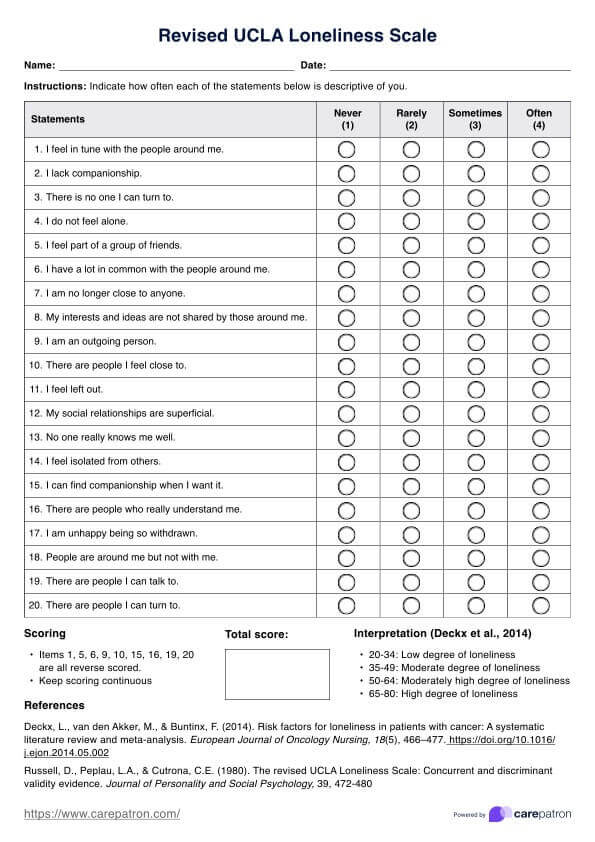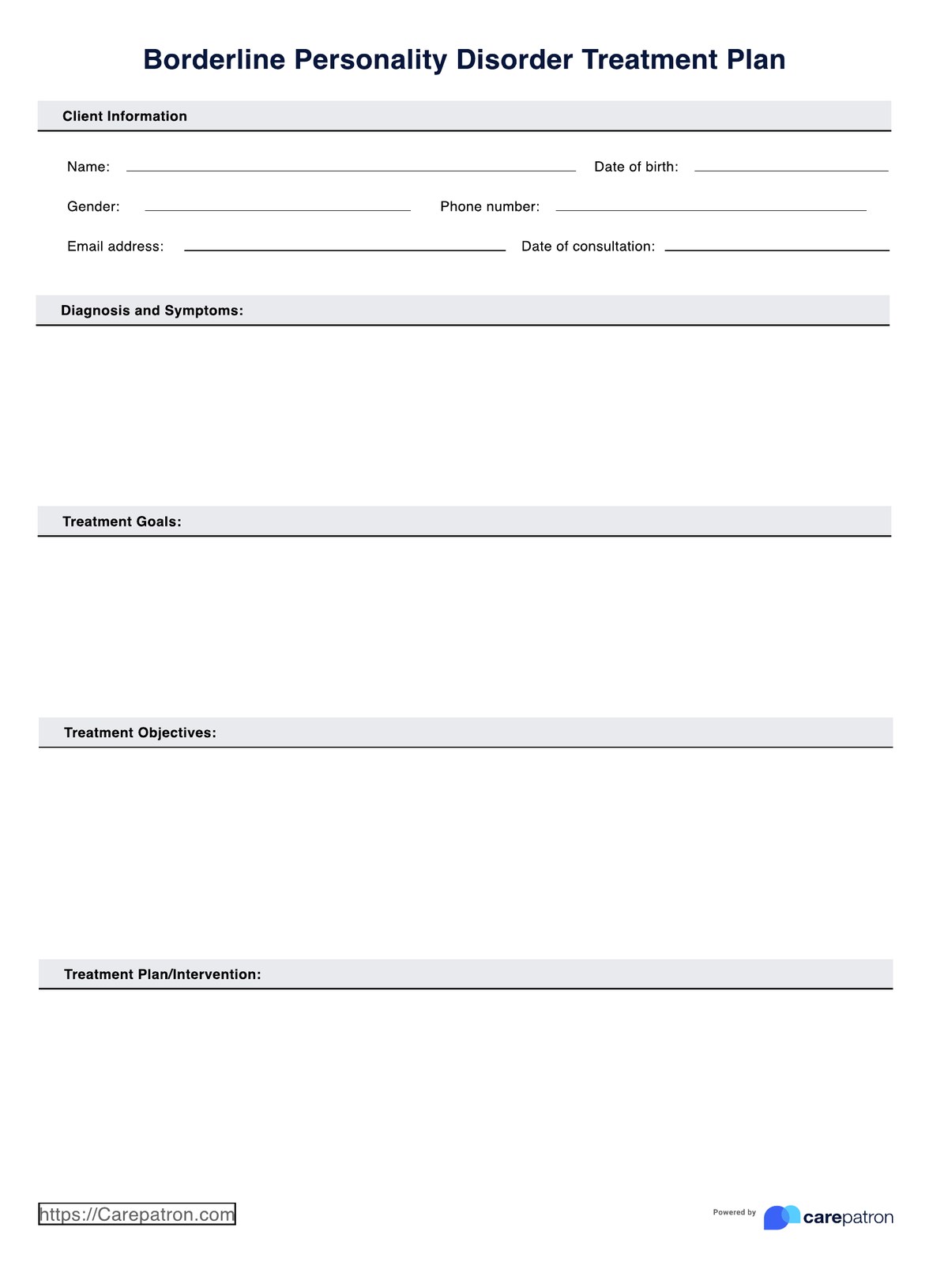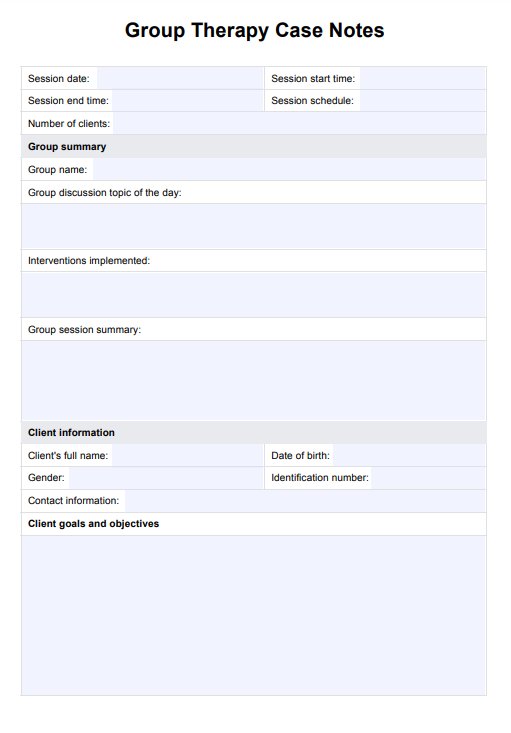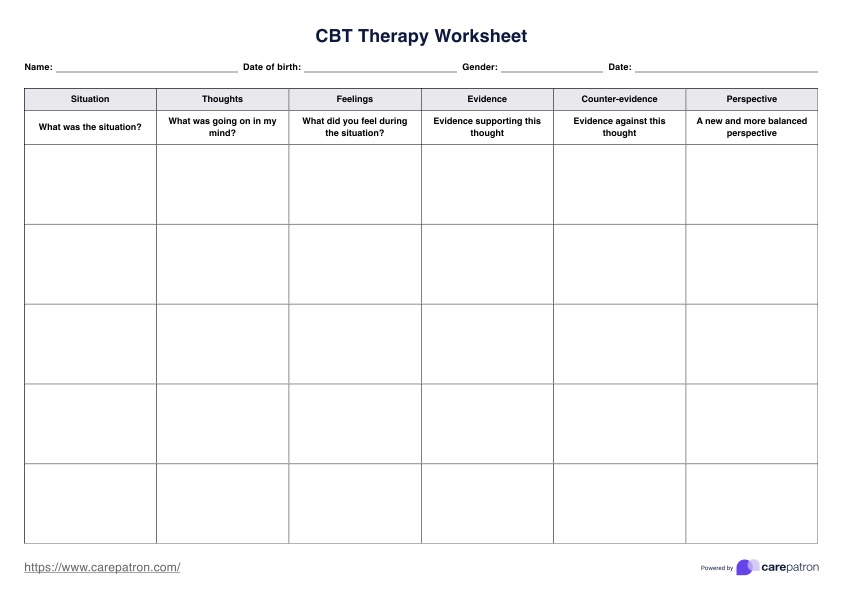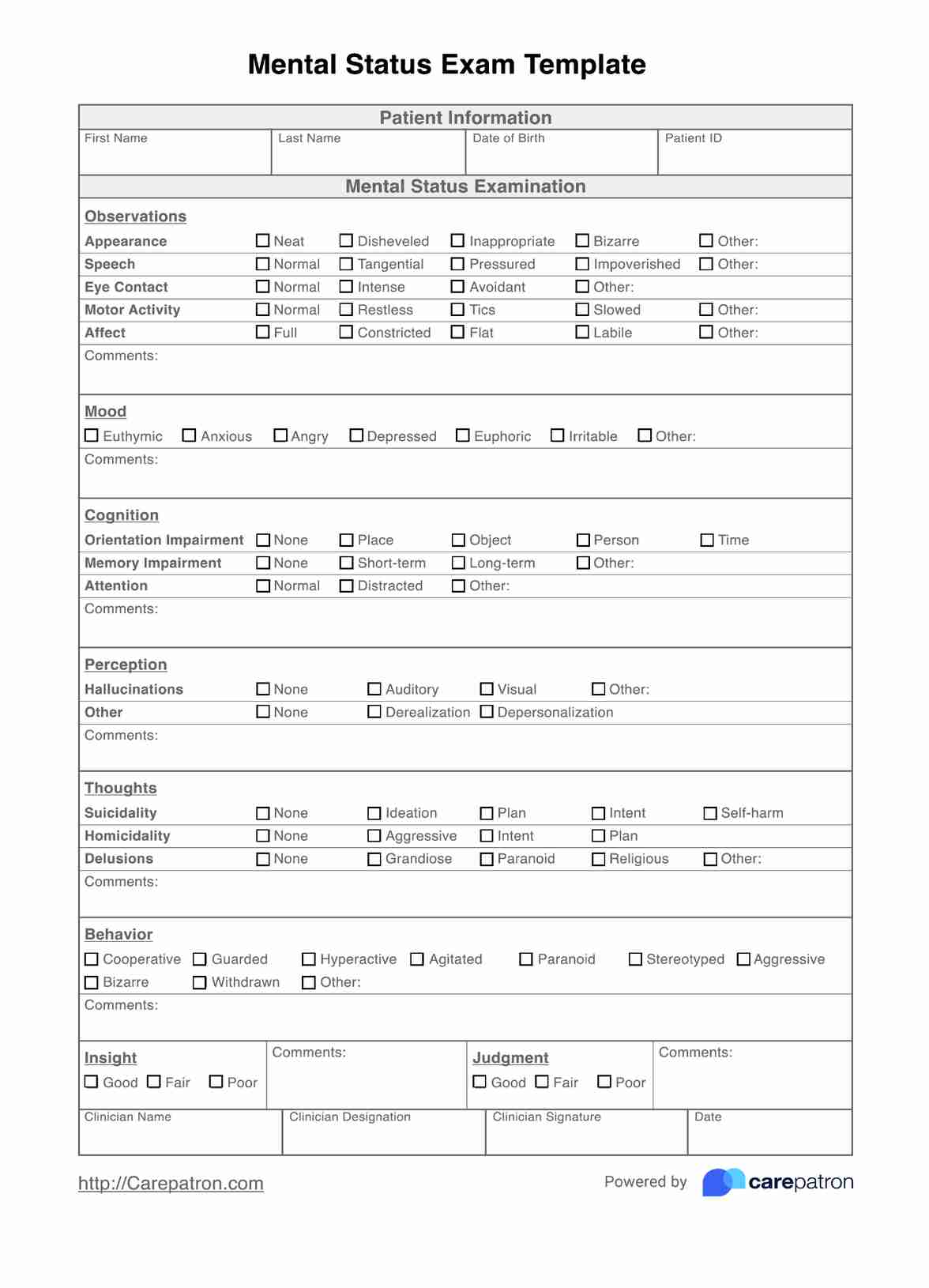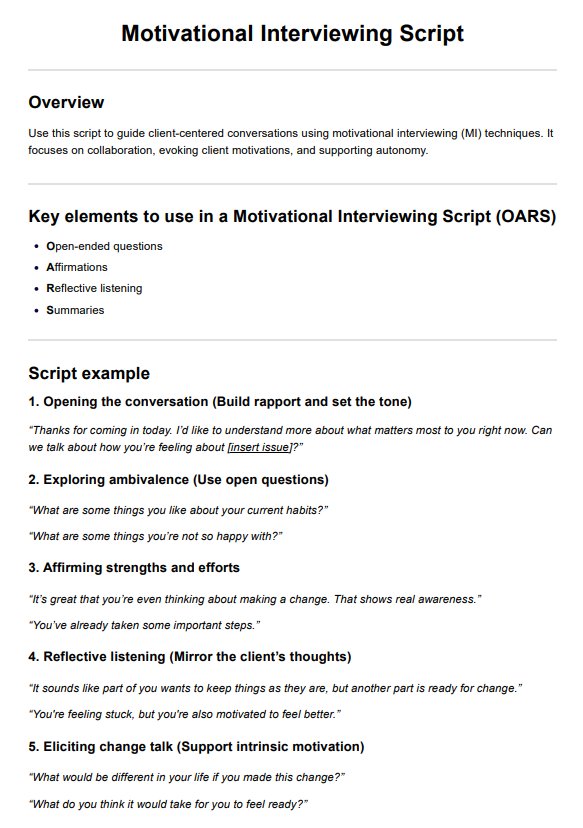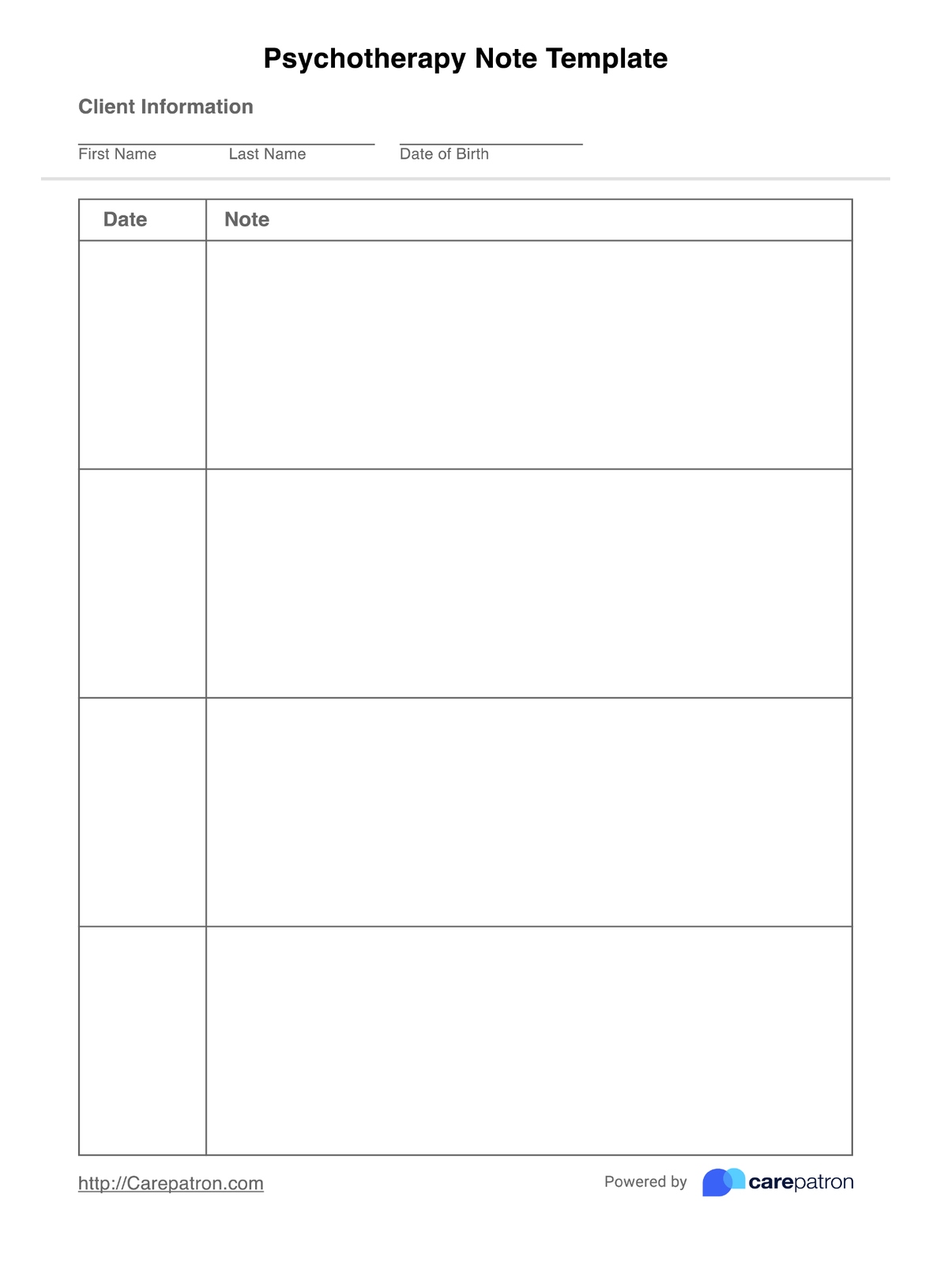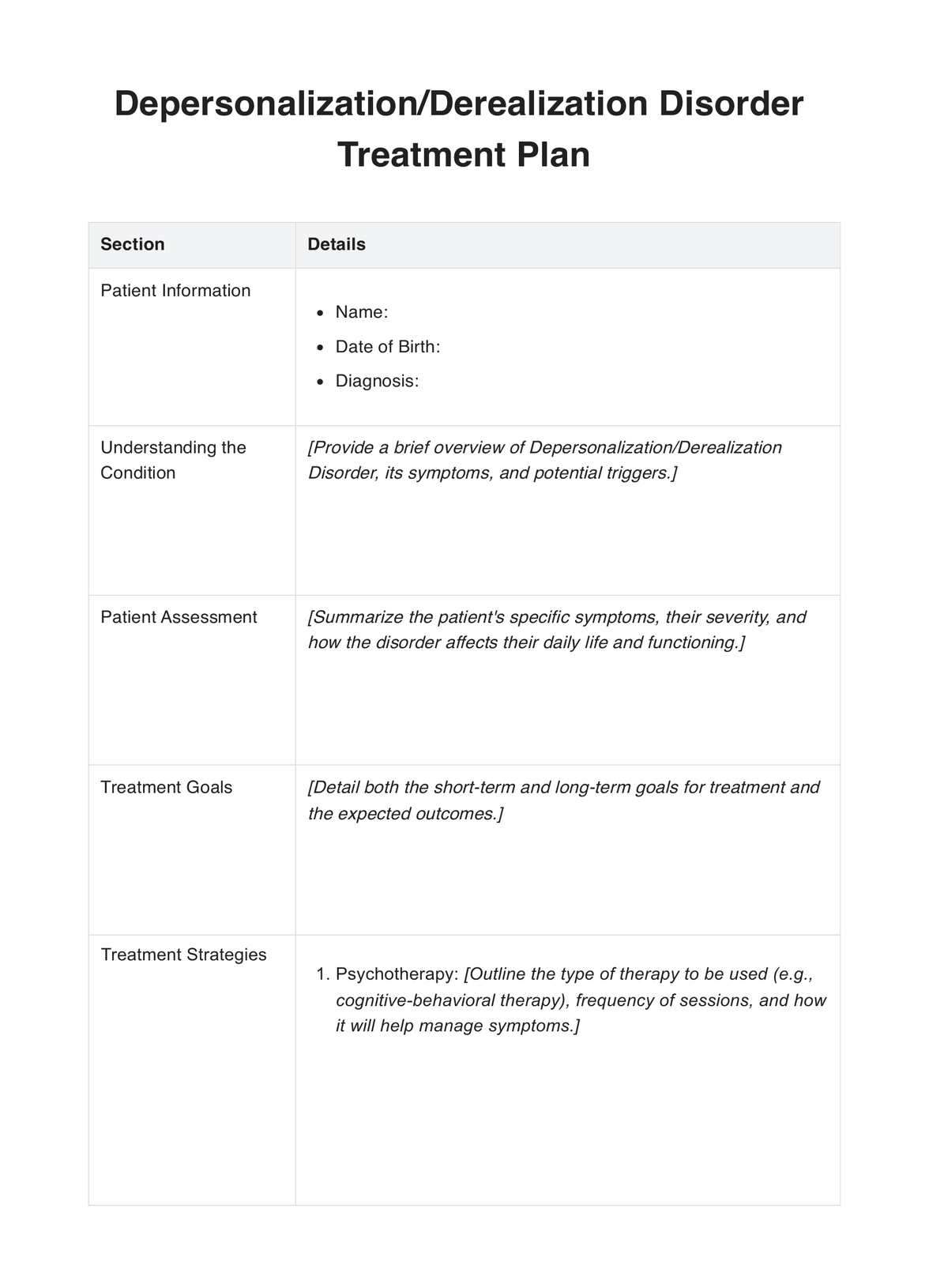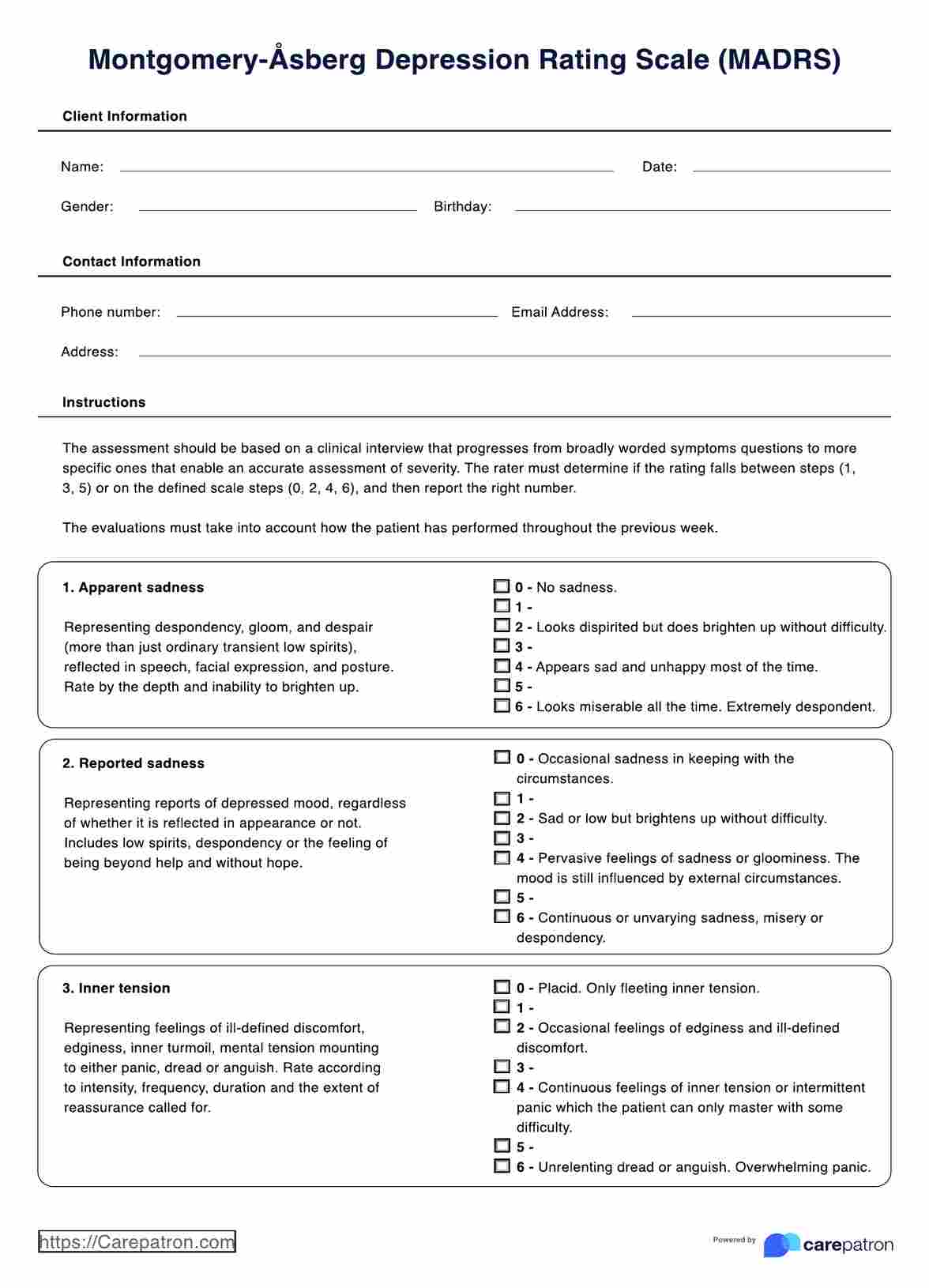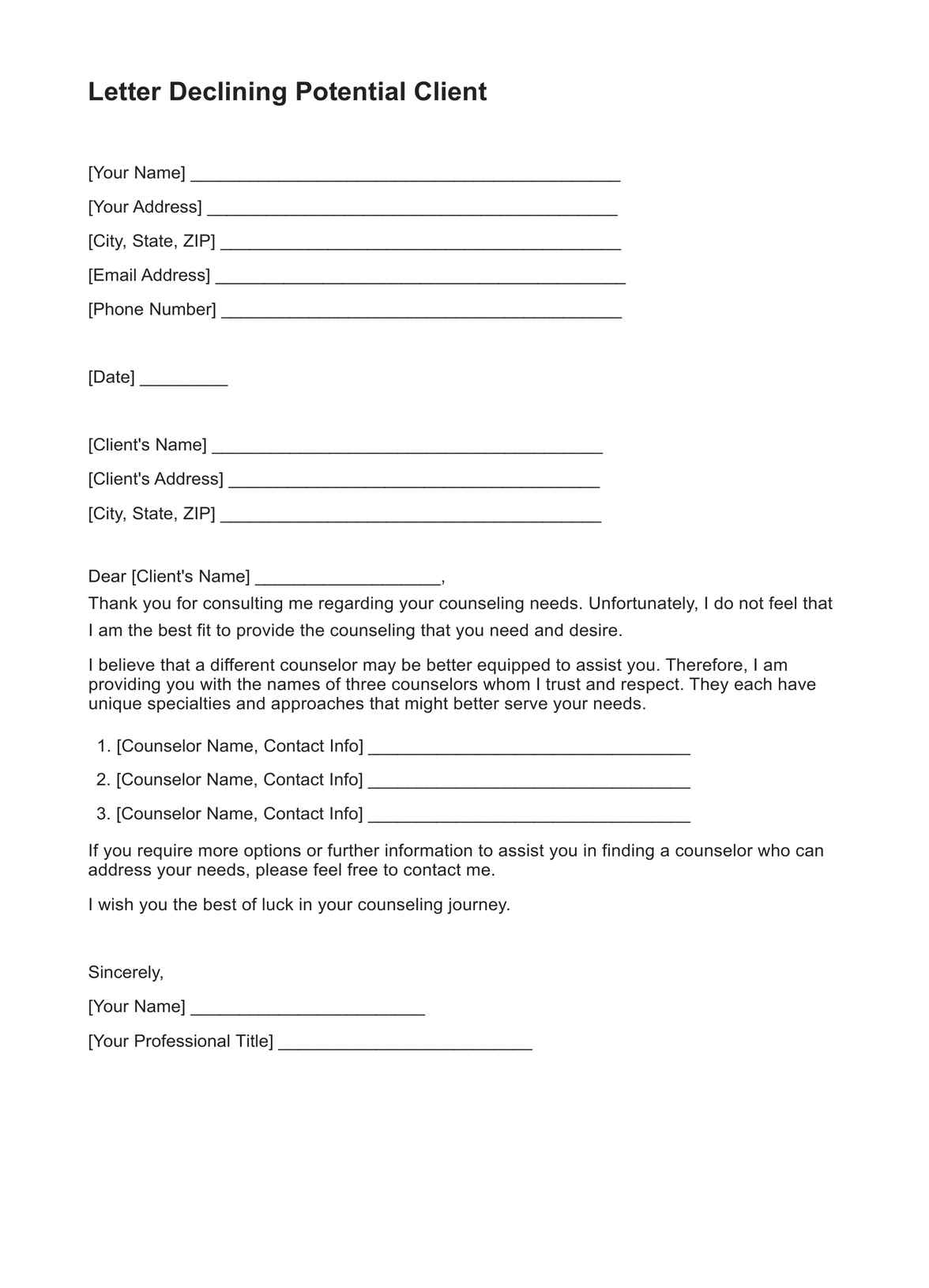DBT Cheat Sheets
Get quick references to DBT principles, techniques, and skills. Improve emotional well-being with a comprehensive DBT Cheat Sheet.


What is a DBT Cheat Sheet?
A DBT (Dialectical Behavior Therapy) Cheat Sheet is a concise and informative resource designed to provide quick reference and guidance on the principles, techniques, and concepts of Dialectical Behavior Therapy. DBT is a therapeutic approach that combines cognitive-behavioral techniques with mindfulness practices. It was initially developed to treat individuals with borderline personality disorder but has since been utilized for various emotional and behavioral challenges.
The DBT Cheat Sheet is a valuable tool for therapists, counselors, students, and individuals interested in understanding and implementing DBT strategies. This resource typically includes key components of DBT, such as:
- Core Principles: A summary of the foundational principles that underlie DBT, including mindfulness, emotion regulation, distress tolerance, and interpersonal effectiveness.
- Skills Breakdown: An overview of the specific skills taught in DBT, including descriptions and practical applications for each skill. These may encompass techniques for managing emotions, enhancing interpersonal relationships, and coping with distress.
- Therapeutic Strategies: Quickly explain the primary therapeutic strategies employed in DBT, such as validation, behavior chain analysis, and dialectical thinking.
- Mindfulness Exercises: Brief descriptions of mindfulness exercises and practices central to DBT, aimed at helping individuals become more aware of their thoughts, emotions, and bodily sensations.
- Emotion Regulation Techniques: Techniques for healthily identifying, understanding, and managing intense emotions.
- Interpersonal Effectiveness Tips: Strategies to improve communication, set boundaries, and navigate social interactions skillfully.
The is a handy reference that condenses the essence of DBT into a concise format, making it easier for practitioners to recall key concepts during therapy sessions or personal practice. It serves as a valuable resource for reinforcing learning, clarifying doubts, and enhancing the effectiveness of DBT interventions.
DBT Cheat Sheets Template
DBT Cheat Sheets Example
How does it work?
Access the Resource
Visit Carepatron’s website and navigate to the DBT Cheat Sheets section.
Download or Print
Choose the specific DBT Cheat Sheet that suits your needs. Download and save the PDF file, or directly print it if you prefer a hard copy.
Read the Introduction
Begin by reading the introduction provided on the cheat sheet. This section may include a brief overview of DBT, its principles, and the purpose of the cheat sheet.
Review Core Principles
Examine the listed core principles of DBT, including mindfulness, emotion regulation, distress tolerance, and interpersonal effectiveness.
Explore Skill Descriptions
Read through the breakdown of DBT skills. Each skill should concisely describe what it entails and how it can be applied in real-life situations.
Study Therapeutic Strategies
Understand the therapeutic strategies mentioned, such as validation, behavior chain analysis, and dialectical thinking. These strategies are vital aspects of DBT practice.
Practice Mindfulness Techniques
Learn about the mindfulness exercises presented. These techniques can help you become more attuned to your thoughts and feelings.
Apply Emotion Regulation Methods
Familiarize yourself with the techniques for managing emotions effectively. This may involve recognizing emotions, reducing vulnerability, and increasing positive emotional experiences.
Implement Interpersonal Effectiveness Tips
Explore strategies for improving interpersonal relationships, including communication skills, assertiveness, and setting boundaries.
Personalization and Practice
Reflect on how these skills and strategies resonate with your own experiences. Consider how you can integrate them into your daily life and interactions.
Use as a Reference
Keep the printed or downloaded DBT Cheat Sheet handy as a quick reference guide. Consult the cheat sheet for a concise explanation whenever you need guidance on a specific DBT concept or technique.
When would you use this Cheat Sheet?
Dialectical Behavior Therapy (DBT) Cheat Sheets are versatile resources that offer concise insights into the principles and techniques of DBT. Tailored for therapists, individuals, and students, these cheat sheets serve as quick references for various scenarios. Here are some instances where this resource can be exceptionally valuable:
- Therapeutic Sessions: Therapists can use DBT Cheat Sheets to enhance their sessions. They provide on-the-spot explanations of concepts, ensuring that the therapist and client are on the same page during discussions.
- Skill Reinforcement: Individuals undergoing DBT can use the cheat sheets to reinforce their learning between sessions. They can review skills, strategies, and mindfulness exercises to bolster their progress.
- Quick Guidance: When faced with emotional distress or interpersonal challenges, individuals can refer to the cheat sheets for instant guidance on managing emotions, practicing mindfulness, and improving communication.
- Educational Settings: Students studying psychology, counseling, or therapy can quickly use DBT Cheat Sheets to grasp DBT's fundamentals. They can also serve as study aids before exams or when preparing assignments.
- Support Groups: DBT Cheat Sheets can facilitate discussions in support groups by providing a common reference point. Participants can share insights, discuss techniques, and offer mutual assistance based on the information provided.
- Workshops and Seminars: Trainers conducting workshops on DBT can distribute these cheat sheets to participants, ensuring they have a tangible takeaway summarizing the key concepts and skills taught.
- Personal Growth: Anyone interested in personal development can use these cheat sheets to improve emotional regulation, mindfulness, and interpersonal interactions.
- Busy Schedules: For individuals with hectic schedules, the cheat sheets offer a quick way to engage with DBT principles without delving into extensive texts.
- Therapist Supervision: Supervising therapists can provide these cheat sheets to their trainees to reinforce their understanding of DBT techniques and strategies.
- Online Resources: Online therapy platforms and mental health websites can incorporate these cheat sheets as valuable downloadable resources for their users.
Benefits
Dialectical Behavior Therapy (DBT) Cheat Sheets offer a range of advantages for therapists, individuals, and students seeking to enhance their understanding and application of DBT principles. Here are some key benefits:
Concise Reference
The DBT Cheat Sheet provides a compact overview of DBT concepts, techniques, and strategies, making it an easy-to-use reference for quick guidance.
Quick Reminders
It is a rapid reminder of key points during therapy sessions, helping therapists and individuals recall essential information without flipping through extensive materials.
Enhanced Learning
The cheat sheet is a study aid for students, offering a summary of DBT principles that can be revisited to reinforce learning and understanding.
Efficient Practice
Individuals can efficiently practice mindfulness exercises, emotion regulation techniques, and interpersonal skills with step-by-step instructions.
Versatile Application
The cheat sheet can be used across various settings, including therapy sessions, support groups, personal growth endeavors, workshops, and educational contexts.
Time-Saving Tool
Both therapists and clients can save time by quickly accessing the cheat sheet to address specific challenges, making therapy sessions more focused and effective.
Accessible Resource
Being available as a free resource, the DBT Cheat Sheet is easily accessible online, contributing to the dissemination of DBT principles and skills to a broader audience.
Confidence Boost
Using the cheat sheet empowers individuals to apply DBT techniques confidently, as they have a reliable guide to navigate emotional challenges and improve interpersonal interactions.
The Free DBT Cheat Sheet is a valuable asset that streamlines the learning and application of DBT, offering a convenient way to harness its benefits for personal growth and therapeutic practice.
Research & Evidence
The DBT (Dialectical Behavior Therapy) Cheat Sheet has evolved as a response to the growing demand for accessible and user-friendly resources in the field of mental health. Its history can be traced back to the wider adoption of DBT, developed by Dr. Marsha Linehan in the late 1980s to treat individuals with borderline personality disorder (BPD). Over the years, DBT has garnered significant recognition for its effectiveness in managing various emotional and behavioral challenges.
The development of the DBT Cheat Sheet aligns with the principles of DBT itself, aiming to provide clear and concise tools for individuals to regulate emotions, improve interpersonal relationships, and cultivate mindfulness. While the cheat sheet format is not a replacement for comprehensive therapy, it serves as a supplementary resource that encapsulates the core concepts and techniques of DBT.
Empirical research and clinical studies have demonstrated the efficacy of Dialectical Behavior Therapy in diverse clinical populations. Studies have shown its effectiveness in reducing self-harm behaviors, suicidal tendencies, and emotional dysregulation. Additionally, DBT has been applied successfully in treating conditions beyond BPD, including depression, substance abuse, eating disorders, and anxiety disorders.
While research on the specific impact of DBT Cheat Sheets may be limited due to its relatively recent emergence, it aligns with the broader research-supported benefits of DBT principles. The cheat sheet reinforces these evidence-based approaches by offering quick references to mindfulness practices, emotion regulation techniques, distress tolerance strategies, and interpersonal effectiveness skills.
The history of the DBT Cheat Sheet is rooted in the evolution of Dialectical Behavior Therapy itself. It draws on a wealth of research and evidence that supports the effectiveness of DBT in improving mental health outcomes across various populations. As an accessible tool, the DBT Cheat Sheet extends the reach of these evidence-based practices, empowering individuals to navigate emotional challenges and enhance their overall well-being.
References
dbt Cheat Sheet. (n.d.). GitLab. https://about.gitlab.com/handbook/product/product-analysis/dbt-cheat-sheet/
DBT Skills List - DBT Self Help. (2022, January 11). DBT Self Help. https://dbtselfhelp.com/dbt-skills-list/
Galen, G., & Aguirre, B. (2021). Dialectical Behavior Therapy For Dummies Cheat Sheet. Dummies. https://www.dummies.com/article/body-mind-spirit/emotional-health-psychology/psychology/dialectical-behavior-therapy/dbt-for-dummies-cheat-sheet-285073/
grouport. (n.d.). Cheat Sheet for Dialectical Behavior Therapy (DBT) | Grouport Journal. Grouport. https://www.grouporttherapy.com/blog/dbt-cheat-sheet
Lmhca, L. B. M. (2022, November 10). DBT Printables: Bingo Worksheet & DBT Skills Cheat Sheet - LindsayBraman.com. LindsayBraman.com. https://lindsaybraman.com/pdf-dbt-printable-worksheets/
Skills Cheat Sheet DT. (n.d.). DBT SKILLS APPLICATION (PEERS HELPING PEERS) SELF-HELP. https://dbtselfhelp.weebly.com/skills-cheat-sheet-dt.html
Straub, M. (2021). DBT Cheat Sheet — Change Counseling. Change Counseling. https://www.changecounselingllc.com/blog/dbt-cheat-sheet
Commonly asked questions
DBT Cheat Sheets are used by therapists, individuals undergoing therapy, students studying psychology, and anyone interested in enhancing their emotional regulation, mindfulness, and interpersonal skills.
DBT Cheat Sheets are used during therapy sessions for quick reference, between sessions to reinforce learning, in support groups for discussions, in workshops for participants, and personal growth endeavors.
DBT Cheat Sheets are accessed by downloading or printing. Users read through core principles, explore skill descriptions, study therapeutic strategies, practice mindfulness exercises, and implement emotion regulation techniques. The cheat sheets are quick references for applying DBT concepts in real-life situations.


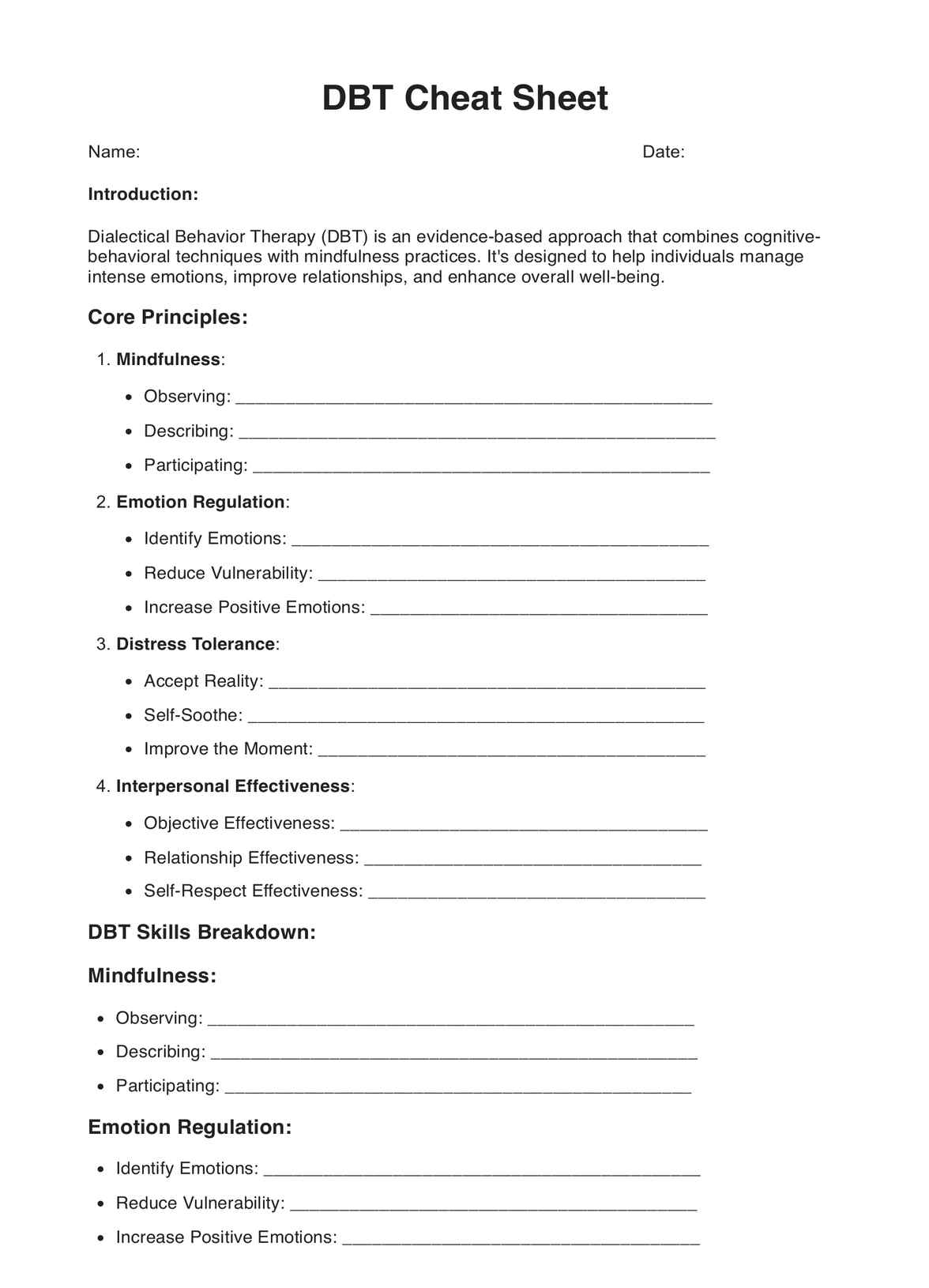
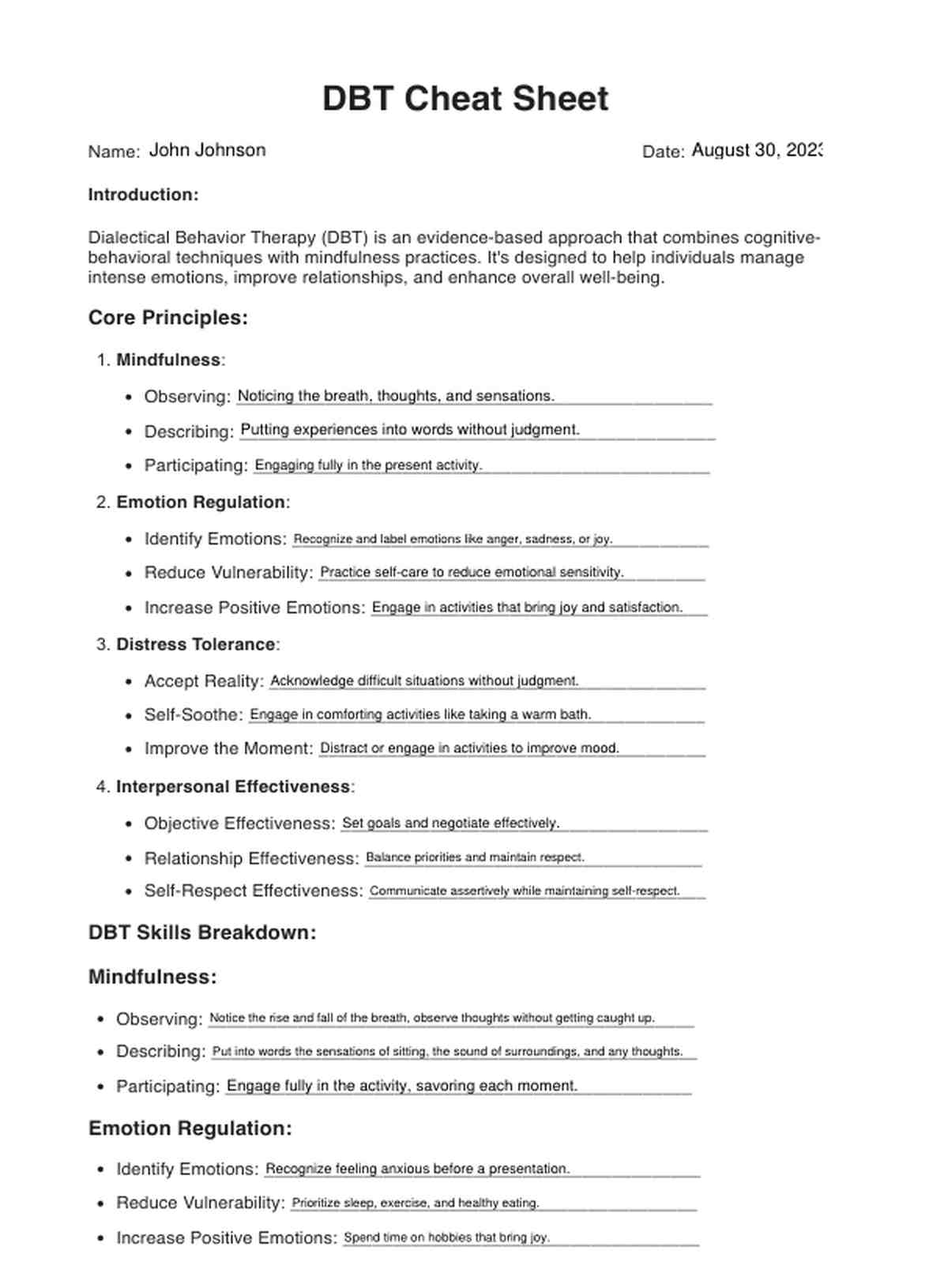

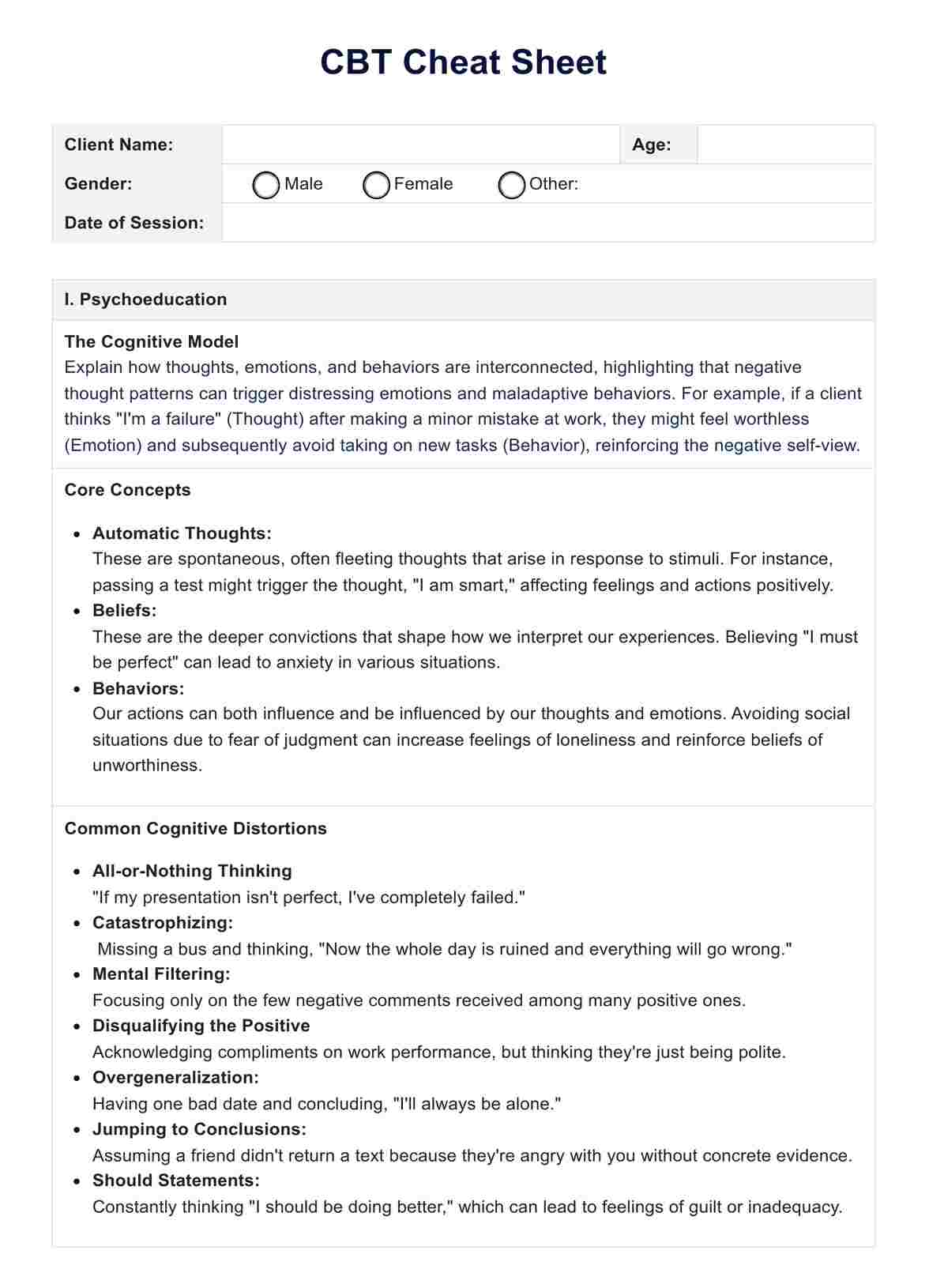
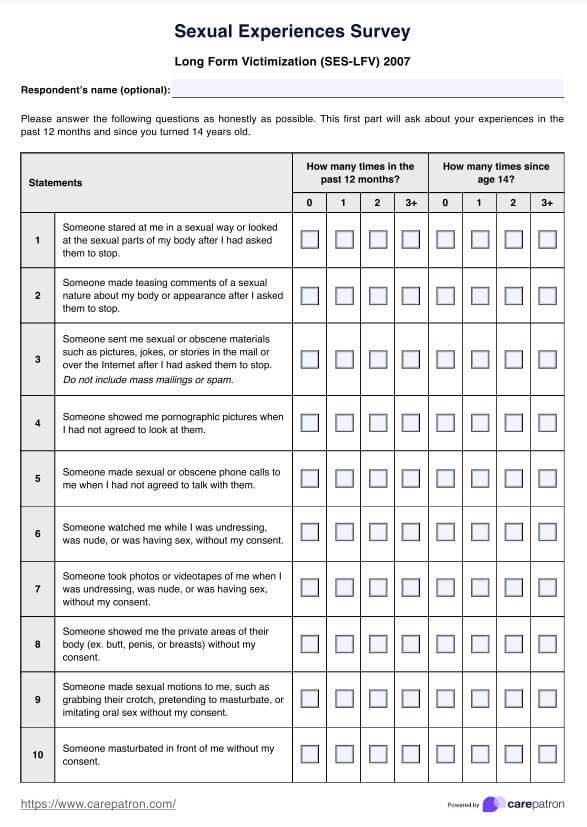
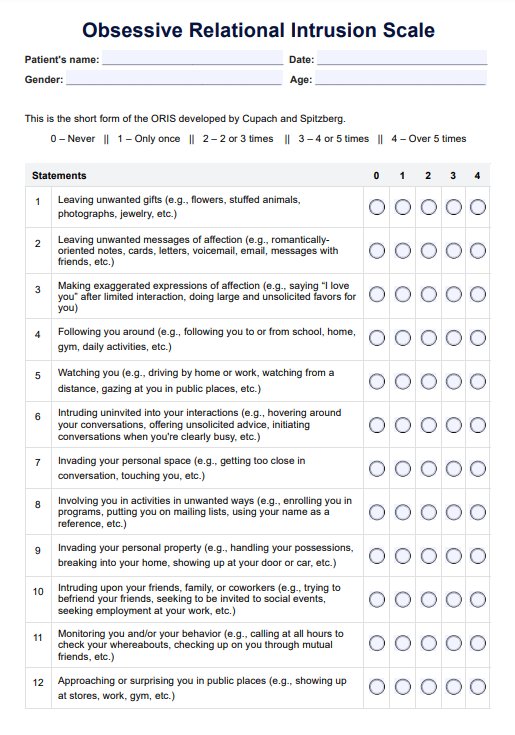
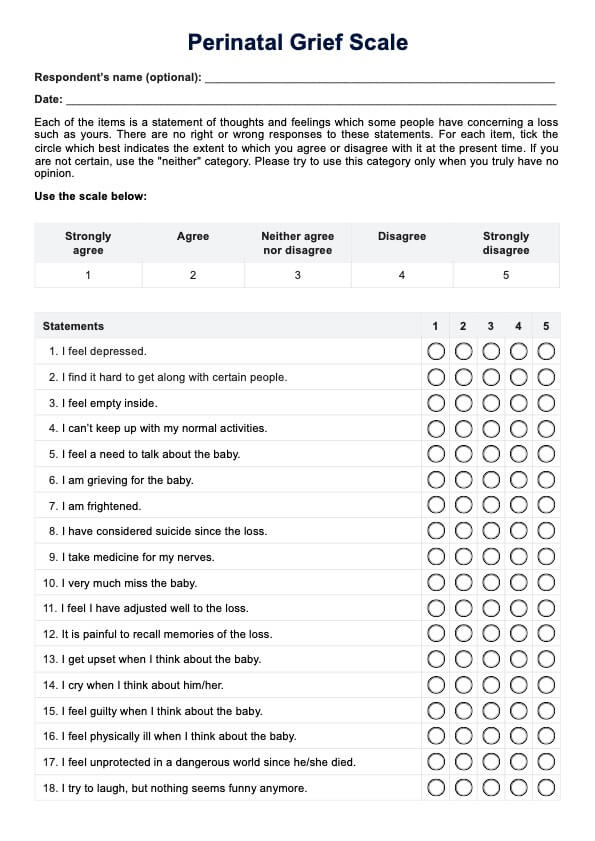











-template.jpg)




















































































